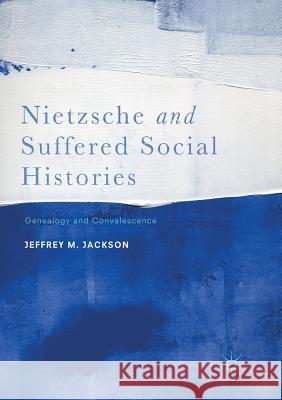Nietzsche and Suffered Social Histories: Genealogy and Convalescence » książka
topmenu
Nietzsche and Suffered Social Histories: Genealogy and Convalescence
ISBN-13: 9781349956241 / Angielski / Miękka / 2018 / 185 str.
Kategorie:
Kategorie BISAC:
Wydawca:
Palgrave MacMillan
Język:
Angielski
ISBN-13:
9781349956241
Rok wydania:
2018
Wydanie:
Softcover Repri
Ilość stron:
185
Waga:
0.24 kg
Wymiary:
21.01 x 14.81 x 1.07
Oprawa:
Miękka
Wolumenów:
01
Dodatkowe informacje:
Wydanie ilustrowane











